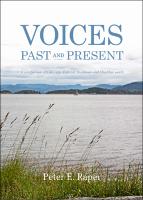Voices past and present
A comparison of Old Cape dialectal, Bushman and Khoikhoi words
Abstract
The preservation of South Africa’s indigenous languages – the extinct Bushman and Khoikhoi languages in particular – is a pressing concern. Voices Past and Present serves as a comprehensive, scholarly and practical source for documenting and preserving some of them. The subcontinent of Africa has been inhabited by Bushman, Khoikhoi and Bantu-speaking peoples for thousands of years, and, for the past few centuries, also by European-speaking peoples. Contact between these peoples brought about changes in the different languages. As a result, modern languages are no longer identical to the original ones, many of which, especially in the case of the Bushman and Khoikhoi languages, have become extinct. Words used in ancient times and recorded long ago often bear no resemblance to their modern counterparts. In this book, Peter E. Raper provides a detailed investigation of the earliest recordings of words available. Words from Old Cape dialects are compared for correspondences in sound and meaning to words from 29 Bushman languages and dialects, as well as to words from Nama, Koranna, Griqua, !Xuhn, !Xoon, Khwe and N/uu. Voices Past and Present provides an extensive corpus of words that can be further utilised for the purpose of shedding light on the specific languages from which the recorded words (and names) were derived, on historical distribution of the various groups, on the classification of the different languages and peoples, for determining relationships or otherwise between the different languages, potentially identifying components of place-names and ethnonyms from ancient and extinct languages, and elucidating other matters that have long vexed scholars who have complained about a lack of recorded data.
Keywords
Khoisan; Bushman; San; indigenous; Cape dialects; orthographic representation; effluxes; consonants; vowels; phonological variabilityDOI
10.18820/9781928424499ISBN
9781928424482, 9781928424499Publisher
UJ PressPublisher website
https://ujonlinepress.uj.ac.za/index.php/ujpPublication date and place
Bloemfontein, 2020Imprint
UJ PressClassification
Historical and comparative linguistics


 Download
Download